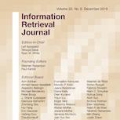Background and Objective: The success of neural networks in a number of image processing tasks has motivated their application in image reconstruction problems in computed tomography (CT). While progress has been made in this area, the lack of stability and theoretical guarantees for accuracy, together with the scarcity of high-quality training data for specific imaging domains pose challenges for many CT applications. In this paper, we present a framework for iterative reconstruction (IR) in CT that leverages the hierarchical structure of neural networks, without the need for training. Our framework incorporates this structural information as a deep image prior (DIP), and uses a novel residual back projection (RBP) connection that forms the basis for our iterations. Methods: We propose using an untrained U-net in conjunction with a novel residual back projection to minimize an objective function and achieve high-accuracy reconstruction. In each iteration, the weights of the untrained U-net are optimized, and the output of the U-net in the current iteration is used to update the input of the U-net in the next iteration through the aforementioned RBP connection. Results: Experimental results demonstrate that the RBP-DIP framework offers improvements over other state-of-the-art conventional IR methods, as well as pre-trained and untrained models with similar network structures under multiple conditions. These improvements are particularly significant in the few-view, limited-angle, and low-dose imaging configurations. Conclusions: Applying to both parallel and fan beam X-ray imaging, our framework shows significant improvement under multiple conditions. Furthermore, the proposed framework requires no training data and can be adjusted on-demand to adapt to different conditions (e.g. noise level, geometry, and imaged object).
翻译:暂无翻译



